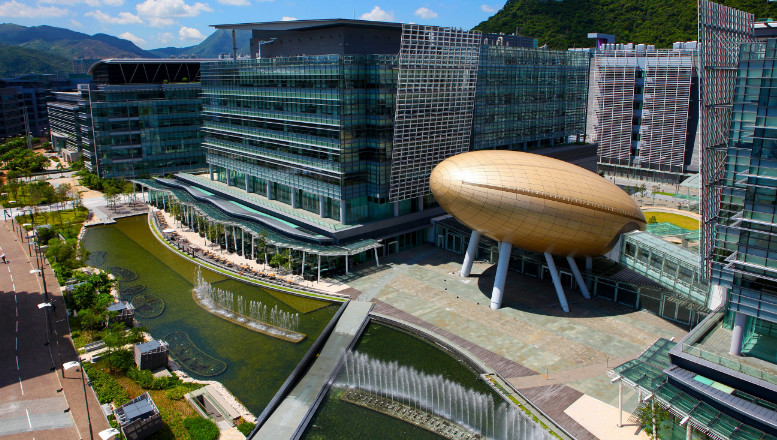HK startups need a more coherent, radical subsidies policy

A few days ago, Science Park declared the foundation of the HKSTP Startups Alumni Association (SAA), which would kick off with 235 members. Yet these “business associations”, as with much of their contemporary counterparts, are not in short supply today. To what extent can the insights and wisdom of the ‘senior management’ of HKSTP be replicated by their younger successors, remains a largely unknown delta. Unlike the public-private partnerships (albeit public-led at their core) – unique to the UK – that promulgated Oxford’s new COVID-19 Vaccine (with a 70% efficacy), Hong Kong remains largely an underdeveloped backwater when it comes to nascent bio-technology.
Few would dispute that industrial policies have been a long-standing deficiency in the HKSAR government, even notwithstanding the hugely pro-industrialisation, former businessman Chief Executive Tung Chee-hwa helming its post-handover governance. Hong Kong technocrats adopt a narrowly fact- or evidence-based approach to governance and policy-making, one that places undue emphasis upon entrenched precedents and superficial efficiency ; whilst these heuristics may indeed be helpful in resource allocation at large, such as social welfare distribution, but when it comes to stimulating industrial development, whether it be centered around new technology or not, these heuristics also imply that the administration remains forever stuck in a rut: young local start-ups’ lack of profitable track record grants them limited to no credibility or track record to convince the government that they ought to be subsidised; yet if the government is purely looking for firms with proven track records, why bother subsidising large conglomerates who have plenty of liquidity to spare?
From Cyberport to Science Park and PMQ, we are by no means unfamiliar with the stories of failed corporate governance and opportunities that had been squandered due to inertia and apathy. PMQ was intended to attract new, independent artists and promote creative culture, which is a good case because art and culture are some of the most intangible, but also essential industries a developed economy should host. Paradoxically, some years ago, one of the tenants finally achieved some success thanks to the help from PMQ subsidy programmes, but was then asked to move out because their new financial sheets are then better looking than the newbies’. Using this social welfare dispensation approach in cultivating new industries is quite inconceivable .
On the other hand, how many successful start-ups have so far emerged from Cyberport? We could name scant few. This is not to mention that the market value of those who end up succeeding would pale in comparison to the billions that the HKSAR government had invested. Only till recent years did Cyberport begin to gain reasonable rental revenue from its office spaces, with incoming tenants such as Microsoft. Yet such revenue has little to nothing at all to do with start-ups and nascent technology, let alone the grooming of technological innovation and start-ups. With the developments of newer Science Parks, it would be high time for Cyberport to wake up and rediscover its genuine niche and potential.
Right the past wrongs through fair flexibility
In Hong Kong, industrial policies and, more specifically, government subsidy to private technological or industrial enterprises have proven to be a damning failure.
For example, the HKSTP has been granted substantial land holdings from the government, such as land from the Tseung Kwan O Industrial Park, with the original purpose of developing it into a regional data hub. However, the company was recently subjected to a judicial review regarding the thriving subletting business at their venues, by which companies earn market rent on their subsidized spaces and should be considered as incompatible with the initial proposition of the subsidies granted. An international data centre operator was exposed in that judicial review (rejected but under appeal) for subletting its Tseung Kwan O factory house at market rate, which they originally rented from HKSTP at 70% off market rates.
It is understandable that flexibility in contractual terms with investors and suppliers is important in entrepreneurial endeavours, not to mention the courageous march into unknown, emerging new industries that market outlets for expensively invented new products and services are yet to be visible. However, the use of public resources must, in similar ways to above mentioned social welfare, be justified to uphold the government’s reputation as the steward of a reliable, consistent and fair international financial centre.
Gloomy as it may sound, industrial development in the Hong Kong apparatus may have a slim possibility of success without rectifying its current policies.
-- Contact us at [email protected]
-

Integration of GIS and BIM can drive development of smart city Dr. Winnie Tang
The China Association for Geospatial Industry and Sciences (“the CAGIS”) released the Top Ten Highlights of China's Geographic Information Industry in 2023, which provides much inspiration. The
-

Equip young people for the future Dr. Winnie Tang
In late February, the inaugural flight of an air taxi from Shenzhen Shekou Cruise Homeport to Zhuhai Jiuzhou Port took only 20 minutes with an estimated one-way ticket price of 200 to 300 yuan per
-

Are we raising a generation of leaders, or of followers? Brian YS Wong
The essence of education is defined not by the facts it imparts, but the potential knowledge it inspires students to individually pursue on their own. Put it this way – the ideal form of education
-

The urgent need for reforms to sex education in Hong Kong Sharon Chau
Nearly one in every four university students (23%) in Hong Kong has been sexually harassed, according to a 2019 report published by the Equal Opportunities Commission (EOC). A 2019 study found that
-

STEAM should be linked to real life Dr. Winnie Tang
In the 2017 Policy Address, STEM (science, technology, engineering and mathematics) education was proposed as one of the eight major directions to promote I&T development. Since then, funding has












